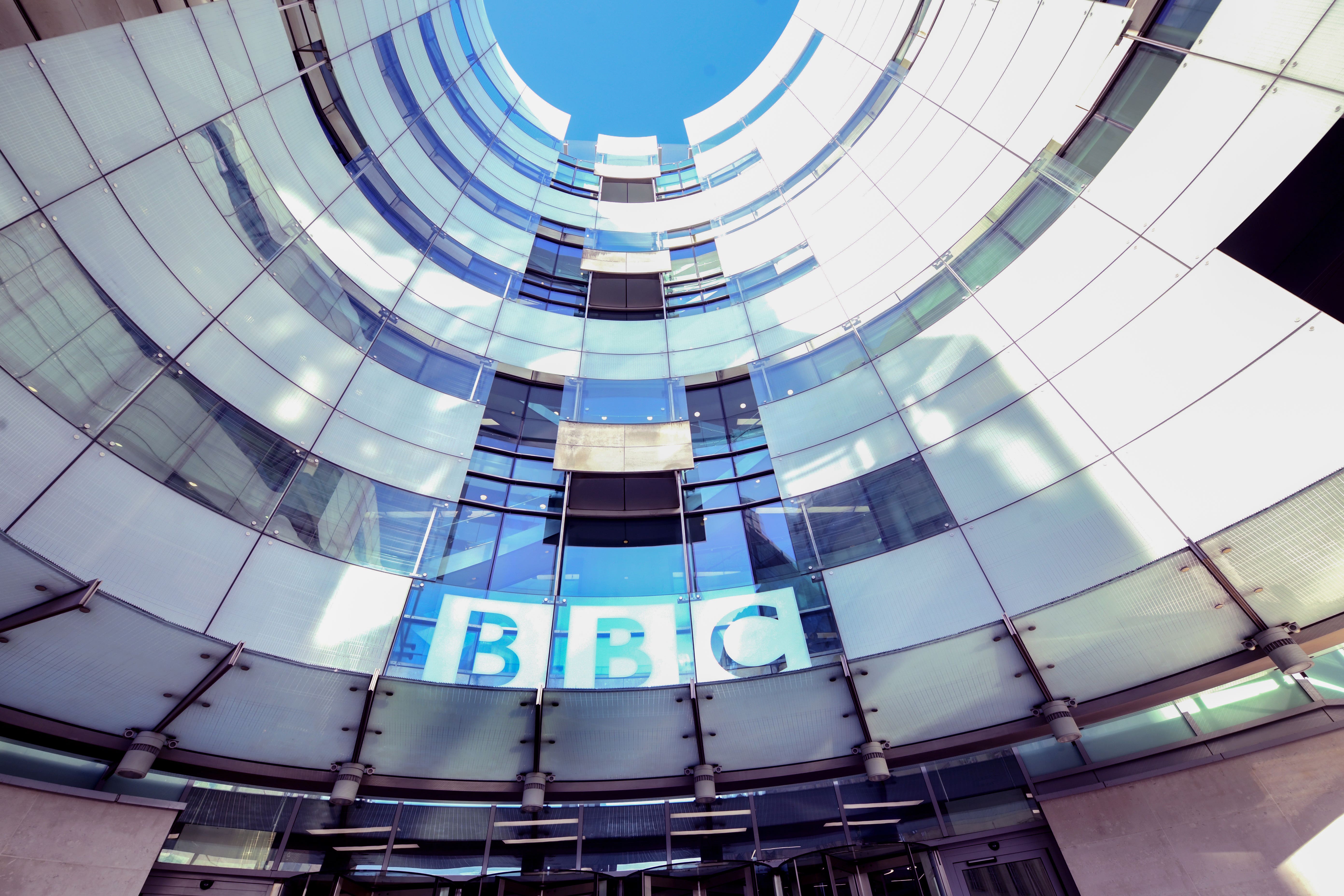BBC has not upheld complaints about coverage of the Israel-Hamas war
Concerns about a report on October 17 in relation to the blast at the al Ahli Hospital as well as other new bulletins were raised.

Your support helps us to tell the story
This election is still a dead heat, according to most polls. In a fight with such wafer-thin margins, we need reporters on the ground talking to the people Trump and Harris are courting. Your support allows us to keep sending journalists to the story.
The Independent is trusted by 27 million Americans from across the entire political spectrum every month. Unlike many other quality news outlets, we choose not to lock you out of our reporting and analysis with paywalls. But quality journalism must still be paid for.
Help us keep bring these critical stories to light. Your support makes all the difference.
The BBC has not upheld a number of complaints raised about its reporting of the Israel-Hamas conflict following an investigation.
Concerns about a report on October 17 in relation to the blast at the al Ahli hospital as well as other new bulletins were raised by law firm Mishcon de Reya Solicitors on behalf of the Board of Deputies of British Jews and the Campaign Against Antisemitism (CAA).
The BBC’s director-general, Tim Davie, referred the complaints to the corporation’s executive complaints unit (ECU), which considered them in light of their “editorial standards of accuracy and impartiality”.
It comes as BBC employees have reportedly been banned from attending a march against antisemitism on Sunday.
Both organisations complained that BBC news show The Context “wrongly attributed” the air strike at the al Ahli hospital to the Israeli military, which the group has suggested was caused by a rocket misfired by Palestinian militants.
During the show, BBC correspondent Jon Donnison reporting from Jerusalem said: “Now the Israeli Defence Force, the Israeli military, have been contacted for comment and they have said that they are investigating.
“But, you know, it’s hard to see what else this could be, really, given the size of the explosion, other than an Israeli airstrike or several airstrikes, because, you know, when we’ve seen rockets being fired out of Gaza, we never see explosions of that scale.
“We might see half a dozen, maybe a few more people being killed in such rocket attacks, but we’ve never seen anything on the scale of the sort of explosion on the video I was watching earlier, which, as you say, is still to be verified.”
The ECU stated the complaint has been “resolved” as it judged Mr Donnison had made it clear to viewers that the Israeli military had not made any “substantive comment”, and although he had stated there was a “strong probability of Israeli involvement”, it deemed he had not offered a “definitive judgment”.
However, it accepted that it was “not consistent with the BBC’s standards of due accuracy to offer any view about responsibility for the incident at a point where so little reliable information was available”.
The complaint’s unit noted that BBC News had posted a statement on their corrections and clarifications page stating Mr Donnison was “wrong to speculate” on the causes of the blast and an apology was added to the statement when the latest ruling was published.
The BBC is clear that antisemitism is abhorrent. We have established guidance around marches, which explains that different considerations apply depending on what you do for the BBC
The ECU said: “This clear public acknowledgement of fault was sufficient for it (the ECU) to reach a finding that both complaints had been resolved in this respect.”
The CAA also complained about a tweet, push notification and post in relation to the reporting of the events of October 17.
The complaints unit did not uphold the complaints about inaccuracy in the report as it referred to BBC Verify’s coverage and stated “the BBC cannot yet establish as fact who was responsible for the blast”.
Another complaint that was not upheld questioned the BBC’s impartiality in relation to the broadcaster not using the term “terrorist” in relation to Hamas.
The Board of Deputies argued that use of “terms as ‘bomber’, ‘attacker’, ‘gunman’, ‘kidnapper’, ‘insurgent’ and ‘militant’ fell short” as they did not “convey the full horror” of Hamas’s actions on October 7.
The ECU accepted that none of these terms on their own conveyed the full horror of the actions but added there was “room for doubt” that even the word “terrorist” did this.
It added that it was the reporting of Hamas’s actions rather than the terminology “that was the test of whether justice has been done to the events”.
Thousands are expected to attend a march against antisemitism on Sunday November 26 in central London.
A spokesperson for Campaign Against Antisemitism has said it feels the matter is “far from resolved” and that it is discussing the response with lawyers.
It has been reported that BBC staff members in news, current affairs, factual journalism and senior management who asked for permission to attend have been denied due to BBC guidelines.
A BBC spokesperson said in a statement to the PA news agency: “The BBC is clear that antisemitism is abhorrent.
“We have established guidance around marches, which explains that different considerations apply depending on what you do for the BBC.
“Corporately, we have not issued any staff communication on any specific march this weekend, but this does not mean discussions which consider the guidance have not taken place between colleagues.”
Subscribe to Independent Premium to bookmark this article
Want to bookmark your favourite articles and stories to read or reference later? Start your Independent Premium subscription today.